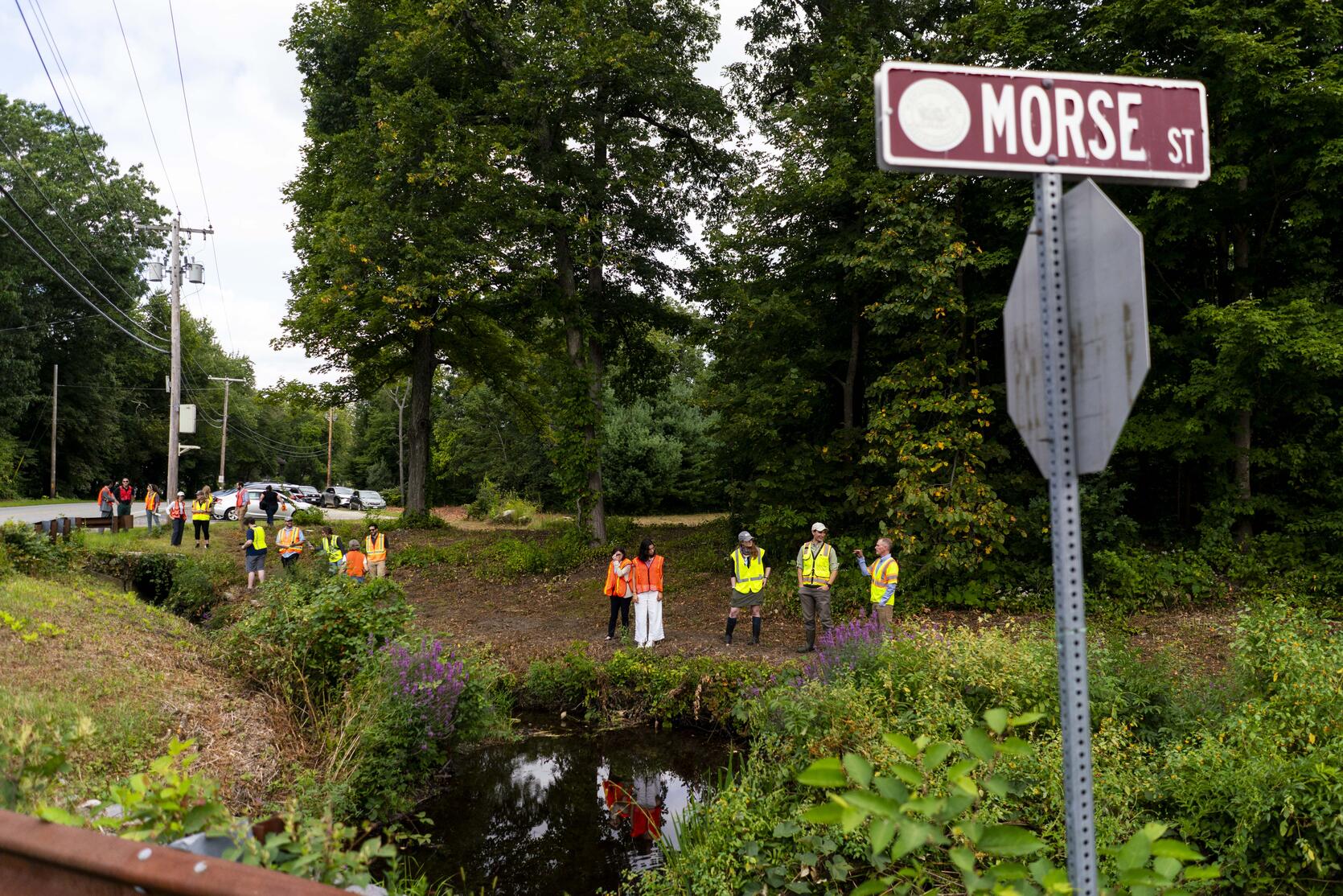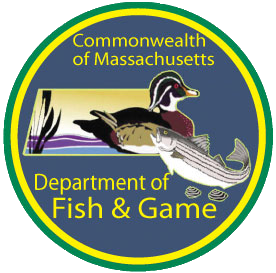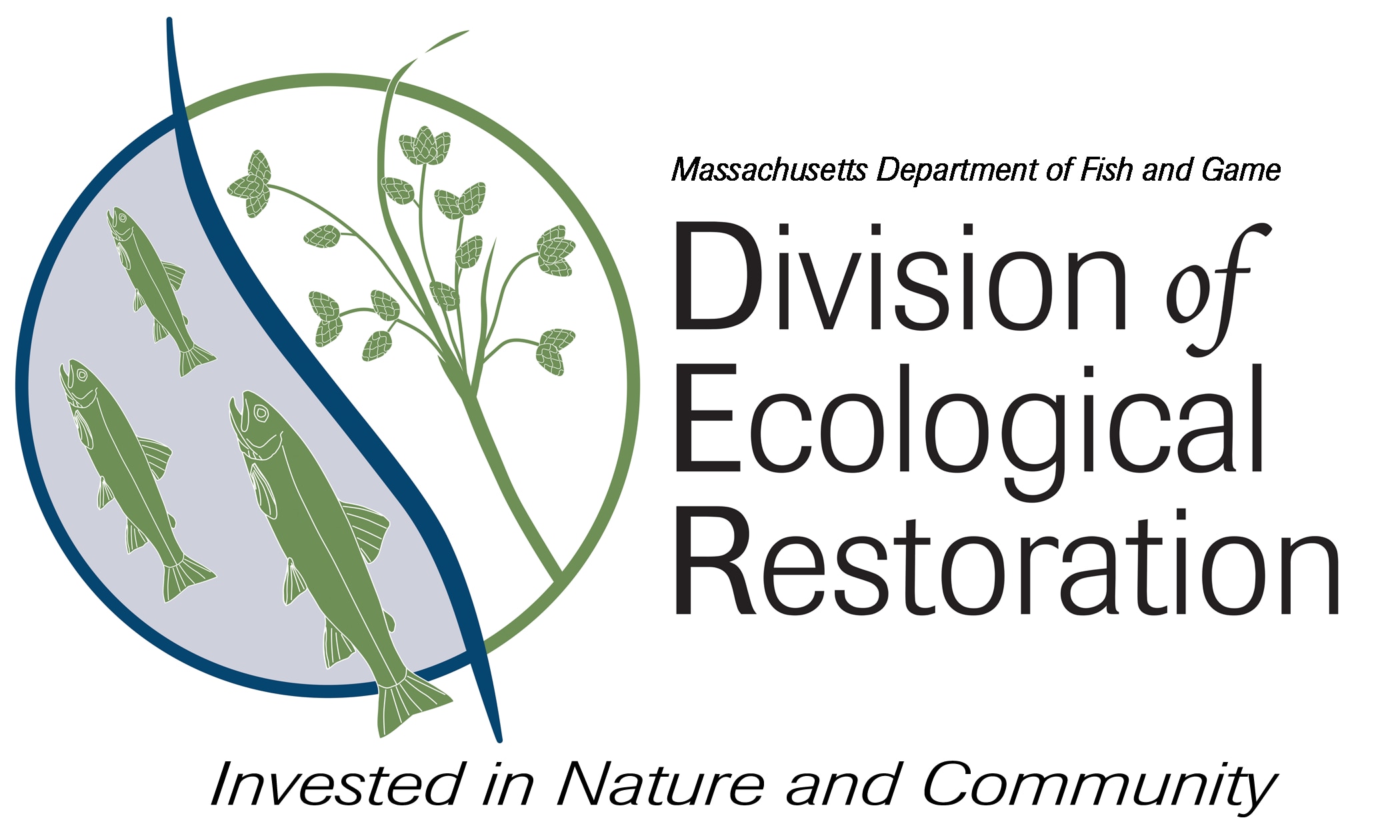- Executive Office of Energy and Environmental Affairs
- Department of Fish and Game
- Division of Ecological Restoration
Media Contact
Julia E. Hopkins, Communications Director

BOSTON — The Healey-Driscoll Administration today announced grants totaling over $3.7 million for river and wetland restoration projects throughout Massachusetts. Through three programs provided by the Department of Fish and Game’s (DFG) Division of Ecological Restoration (DER), these projects will strengthen community resilience to climate change, reduce flood risks, improve climate-ready infrastructure and public safety, and restore crucial wildlife habitat and water quality.
“As climate change brings more intense storms and flooding, building resilient infrastructure and restoring ecosystems are vital for Massachusetts. Ecological restoration is key to this effort. DER is leading the charge with nature-based solutions to ensure a strong, resilient future,” said Energy and Environmental Affairs Secretary Rebecca Tepper. “The Healey-Driscoll Administration is committed to supporting projects that restore healthy waterways and looks forward to continued collaboration with municipalities and partners, so we can expand our impact and help communities thrive amid the challenges ahead.”
"Collaboration and partnership are essential to achieve Massachusetts’s nation-leading biodiversity and climate goals,”said DFG Commissioner Tom O’Shea. "By working together to restore these important ecosystems, we will improve passage for fish and wildlife, restore habitat and water quality, and reduce flood risks. These projects are a win-win for people and nature—we are proud to be ushering them along.”
DER is awarding over $2.1 million to 17 municipalities through its Stream Continuity Program via the Culvert Replacement Municipal Assistance (CRMA) Grants and the Culvert Replacement Training Site Initiative. The CRMA Grants help municipalities replace outdated culverts with new, improved crossings. These upgrades restore river ecosystems, enhance fish and wildlife passage, and reduce flood risks, improving climate resilience and public safety. The Training Site Initiative will turn some of these project sites into training hubs, creating a network of locations for hands-on learning to teach local roadway managers about culvert replacements in Massachusetts.
Additionally, DER has allocated $754,635 to support three Restoration Partnerships through its Regional Restoration Partnerships Program. This program boosts the pace and scale of ecological restoration in Massachusetts by strengthening local and regional organizations that collaborate on restoration projects, helping both people and nature adapt to climate change.
DER is also awarding $899,200 to the Herring River Estuary Restoration Project through DER’s Priority Projects Program. The Priority Projects Program is the vehicle by which DER pursues wetland and river restoration projects that present the greatest benefit to the state ecologically, socially, and economically. Priority Projects underway include removal of aging, unsafe dams; restoration of freshwater wetlands in former cranberry farmlands; replacement and removal of undersized and degrading culverts; and restoration of tidal flow to degraded coastal habitats.
“Watershed and other regional organizations play a critical role in leading river and wetland restoration,” said DER Director Beth Lambert. “With support from DER, these three Partnerships have developed strong relationships with municipalities and landowners, have identified high-priority restoration projects, and are now advancing these projects. We look forward to seeing the many benefits that will result from this work, from increased climate resilience, reduced flood risk, and improved public safety, to healthier systems, connected waterways, and improved passage for important wildlife.”
“This funding for ecological restoration is game-changing for the health of the Merrimack River, the source of drinking water for hundreds of thousands of people,” said Rep. Kristin E. Kassner (D-Hamilton). “Thank you to the Division of Ecological Restoration for your focus on the Merrimack River; these grants will improve water quality, restore habitat, and enhance climate resiliency in our district and the Commonwealth.”
“This funding will help protect the residents of Westborough from flooding while also preserving a critical coldwater fisheries resource for the broader region,” said Senator Michael Moore (D-Millbury). “I’m thrilled that the Healey-Driscoll administration has announced these funds to make our communities more resilient to the effects of climate change. I look forward to collaborating on these efforts going forward for more cities and towns in my district and beyond.”
"I am appreciative of the Healey-Driscoll administration for its investment into this important project in Petersham and the continued partnership with the Department of Fish and Game to protect our aquatic ecosystems," said Representative Aaron Saunders (D-Belchertown).
The following 14 municipalities were awarded funding through DER’s CRMA Grant Initiative:
- The Town of Billerica; Concord River Tributary Culvert Replacements: $85,000 The Town of Billerica will collect field data to assess two culvert replacement projects on a tributary to the Concord River on Queensland Road and Nashua Road, a critical area that is prone to flooding and that is currently blocked for wildlife passage by the undersized culverts.
- The Town of Brimfield; Sessions Brook Culvert Replacement: $92,000 The Town of Brimfield will collect field data and perform design/engineering work to replace a degraded culvert on Brookfield Road over Sessions Brook, which is a Coldwater Fisheries Resource and important habitat.
- The Town of Chester; Abbott Brook Culvert Replacements: $185,000 The Town of Chester will conduct design/engineering and permitting activities for the replacement of two culverts prone to flooding issues on Abbott Hill Road and Ingell Road over Abbott Brook, which is a Coldwater Fisheries Resource and important habitat for rare and endangered species.
- The Town of Cummington; Swift River Culvert Replacement: $150,000 The Town of Cummington will replace a deteriorated culvert on Stage Coach Road over the North Branch of the Swift River, which has been identified as a Coldwater Fisheries Resource and is in an area of critical habitat for rare species.
- Town of Dudley; French River Tributary Culvert Replacement: $125,000 The Town of Dudley will collect field data and conduct engineering/design activities for the replacement of an undersized and deteriorating culvert on a tributary to the French River on New Boston Road, which is a primary access road for the Town.
- Town of Mattapoisett; Pine Island Brook Culvert Replacement: $41,662 The Town of Mattapoisett will collect field data for the replacement of an undersized and failing culvert on Pine Island Road over Pine Island Brook, which will be blocked to wildlife passage in the event of culvert failure.
- Town of Monson; Twelvemile Brook Culvert Replacements: $106,000 The Town of Monson will collect field data and conduct design/engineering work for the replacement of two undersized culverts over Twelvemile Brook and a tributary on Nieske Road and Reimers Road, where flooding has been an issue. The stream has been identified as a Coldwater Fisheries Resource and is in a priority habitat area for rare species.
- Town of Pepperell; Sucker Brook Culvert Replacements: $75,000 The Town of Pepperell will conduct design and engineering activities for two culvert replacement projects over Sucker Brook on Sartell Street and Sheffield Street. The stream has been identified as a Coldwater Fisheries Resource and would leverage multiple restoration projects along Sucker Brook to restore and reconnect habitat.
- Town of Petersham; Silver Brook Culvert Replacement: $106,000 The Town of Petersham will collect field data for the replacement of an undersized culvert that has been closed due to structural deficiencies, located on Glen Valley Road over Silver Brook, which is a Coldwater Fisheries Resource and a priority habitat for rare species.
- Town of Savoy; Phelps Brook Culvert Replacement: $62,000 The Town of Savoy will collect field data, perform design & engineering work, and conduct permitting work for the replacement of an undersized culvert on Old Main Road over Phelps Brook, which is a Coldwater Fisheries Resource.
- Town of Stockbridge; Marsh Brook Culvert Replacement: $51,500 The Town of Stockbridge will collect field data for a partially-crushed and perched culvert on Rattlesnake Mountain Road over Marsh Brook, where flooding has been an issue.
- Town of Warren; Tufts Brook Culvert Replacements: $140,000 The Town of Warren will collect field data and conduct design/engineering work for the replacement of two undersized culverts on New Reed Street over Tufts Brook, which is a Coldwater Fisheries Resource.
- Town of Westborough; Jackstraw Brook Culvert Replacements: $136,500 The Town of Westborough will conduct design and engineering work for the replacement of two undersized culverts on Upton Road and Morse Street over Jackstraw Brook, which is a Coldwater Fisheries Resource and area of critical environmental concern where flooding has been a serious issue.
- Town of Windsor; Dry Brook Culvert Replacement: $400,000 The Town of Windsor will replace a perched and degraded culvert on a tributary to Dry Brook on Cheshire Road, which is an important road between towns for emergency services, commuting, and school bus routes.
Three culvert replacement sites were also selected as training sites through DER’s Culvert Replacement Training Site Initiative:
- Town of Middlefield; Bear Mountain Brook Culvert Replacement: $62,000 The Town of Middlefield will collect field data, perform preliminary design and engineering work, and conduct permitting work for a culvert replacement project over Bear Mountain Brook on Cone Road.
- Town of Palmer; Ware River Tributary Culvert Replacements: $158,000 The Town of Palmer will collect field data and conduct preliminary design and engineering work for the replacement of two undersized and deteriorating culverts on an unnamed tributary to the Ware River on Bacon Road and West Ware Road, where flooding has been an issue.
- Town of Weston; Stoney Brook Culvert Replacements: $127,000 The Town of Weston will collect field data for the replacement of two undersized culverts on Viles Street and Church Street over Stoney Brook, which has been identified as a Coldwater Fisheries Resource.
The following three Partnerships were awarded funding through DER’s Regional Restoration Partnerships Program:
- Buzzards Bay Coalition; Buzzards Bay Watershed Restoration Partnership: $306,635.34 The Buzzards Bay Watershed Restoration Partnership supports a network of towns, local land trusts, and private landowners throughout the Buzzards Bay region working to implement strategic ecological restoration, land conservation, and climate-resilient projects. This award will support their efforts to build local and regional capacity for restoration and advance high-priority projects such as river and stream barrier removal, salt marsh restoration, and freshwater wetland restoration.
- Housatonic Valley Association; Berkshires Clean, Cold, Connected Partnership: $248,000 The Berkshire Clean, Cold, Connected Partnership supports a network of organizations, agencies, and communities working for healthy aquatic systems and building climate resilience in the Hoosic, Housatonic, and Farmington River watersheds. This award supports their efforts to continue building local and regional capacity for restoration education, planning, and support the implementation of locally-driven priority restoration projects.
- Merrimack River Watershed Association; Merrimack Restoration Partnership: $200,000 The Merrimack Restoration Partnership supports a diverse network of partners and stakeholders working to advance a strategic, watershed-scale restoration and climate-resilient vision in the Merrimack Watershed. This award will support their efforts to build project support and advance locally-driven, high-priority ecological restoration projects including dam removals, culvert replacements, wetland/floodplain restoration, and urban stream revitalization.
The Herring River Estuary Restoration Project receiving funding through the Priority Projects Program is:
- Friends of Herring River; Herring River Estuary Restoration Project: $899,200 The Herring River Estuary Restoration project is the largest tidal estuary restoration ever undertaken in Massachusetts and the North Atlantic coastal region and will restore approximately 890 acres of degraded salt marsh and estuarine habitats once completed. This award supports administrative, technical, regulatory compliance, outreach/communications, monitoring, and project coordination tasks as construction proceeds.
###

